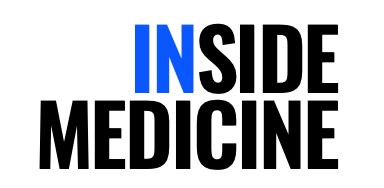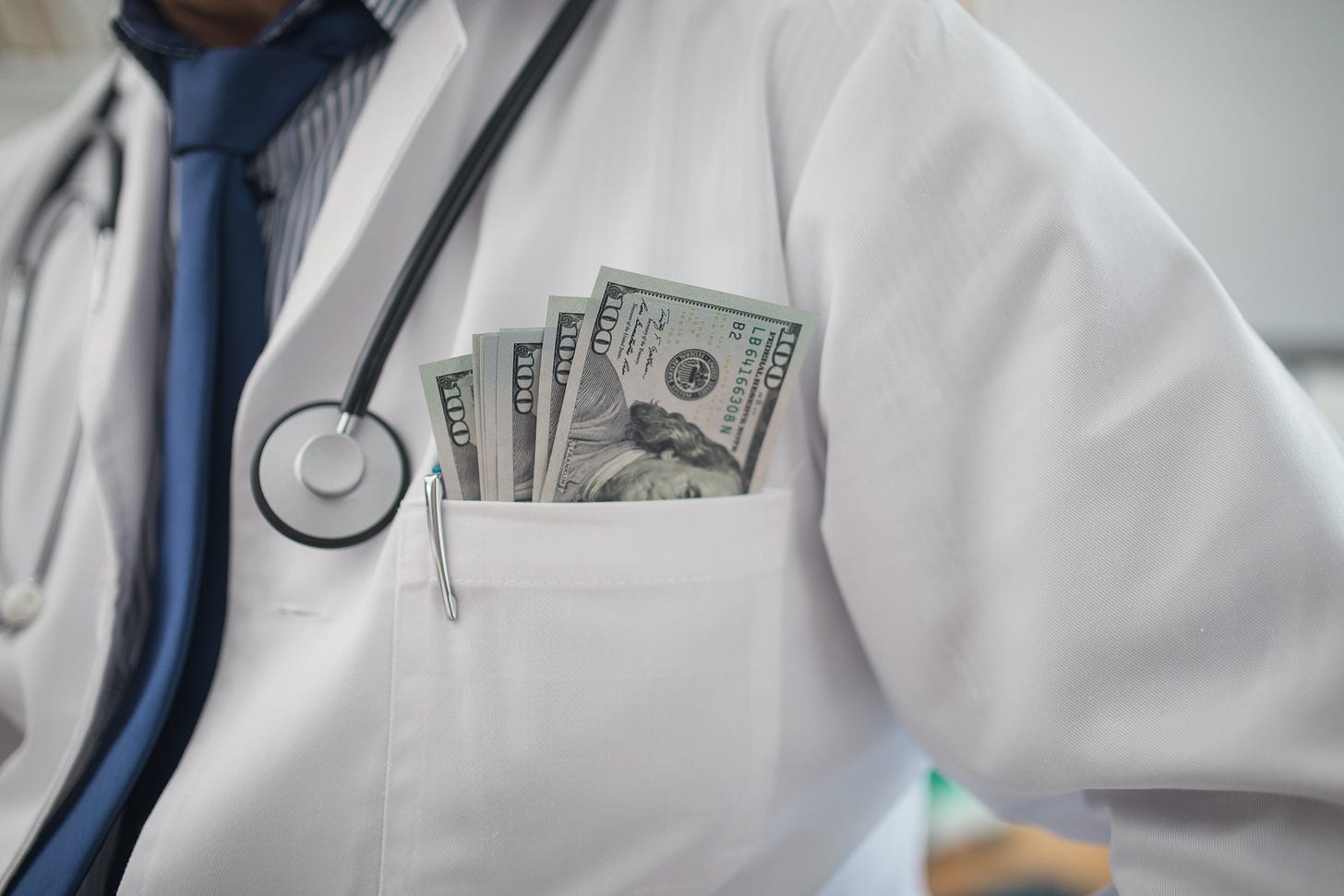Inside Medicine: Five on Friday (February 23, 2024).
This week in medicine, what I'm thinking about, etc. You know, an actual newsletter.
We are back with “Five on Friday", the feature where Inside Medicine behaves like an actual medical/health/science newsletter. Below are some top-of-mind things that I’m thinking about right now. And please vote in the polls at the end!
If you value this feature—and Inside Medicine in general…
Thanks! Here we go…
Item 1. What I’m Reading: Misinformation is lucrative.
The Washington Post’s Lauren Weber and McKenzie Beard have a deeply reported story revealing just how profitable misinformation has been for several prominent pushers of disproven Covid-19 treatments like ivermectin and hydroxychloroquine.
People often ask me how peddlers of misinformation can live with themselves, knowing that they’ve encouraged ineffective treatments in the place of effective ones. While incompetence is one answer, I would never ignore profit motive. Once attention and money start flowing in, it’s hard to get someone to change their mind about something. This famous quotation comes to mind: “It is difficult to get a man to understand something, when his salary depends upon his not understanding it.” This force— combined with the drive for fame and glory—explains at least in part why some previously productive physicians “jump the shark” and push misinformation. It’s just sad that people get harmed in the process.
Item 2. Voices: Keeping the medical and science pipeline diverse.
Last week, I interviewed two colleagues for MedPage Today in a conversation focused on diversity in medicine and science. My interview with Dr. Utibe Essien (UCLA) and Dr. Ijeoma Opara (Yale) was informative, interesting, and even inspiring. In this two part series (Part I, Part II), we discussed how the medical and science communities can maintain and expand diversity in light of the recent Supreme Court decision that effectively ended race-conscious admissions (at least as we’ve known it) in higher education. We also touched on the importance of mentorship and, above all, why diversity in these fields matter. A favorite quote from the interview (because I also identified with it!):
“One of the ways that I make sure that my lab continues to stay diverse and increase the pipeline is I don't always look for the student that has a bunch of publications, for having worked at the top research labs in undergrad—because that wasn't me.” —Dr. Ijeoma Opara.
Instead, Dr. Opara looks for students who are passionate about the field and have a genuine interest in the work her specific lab does. Here again are the links to Part I and Part II. I highly recommend you follow these scholars’ work. And keep an eye out for a major paper that the three of us (and an all-star list of other authors) collaborated on later this year.
Item 3. What I’m Reading: Emergency Medicine Match Day 2023 final analysis. Not as bad as we thought.
You may have seen headlines last year that 554 out of the approximately 3,000 emergency medicine residency spots in the US went unfilled in the 2023 “Match” (i.e., the process by which graduating medical students find a residency). But it turns out that 92% of the 554 unmatched spots were actually filled within one week, via the “secondary match” process known as the SOAP. In a story that I commissioned and edited for The Annals of Emergency Medicine, medical journalist Crystal Phend spoke to experts, explains what happened, and discusses what this all means for my field.
Item 4. February is National Heart Month.
It’s not too late to notice that February is “American Heart Month.” Here are some links with ample material that you can read, learn from, and freely share online.
Evidence-based resources for conditions like atrial fibrillation, hypertension during pregnancy, heart disease and stroke prevention, and others.
Heart health information covering smoking cessation, alcohol consumption, (moderation or cessation), and some good reminders on diet.
A bunch of public service announcements that are short, actually kind of fun, and free to share—including this one below about how great swimming is. (I am biased; I swam in high school and college.)
Item 5. Poll of the Week results.
Here are the results to last week’s Inside Medicine poll. Interestingly, your results indicate that the Inside Medicine readership experience has not been too different from findings in studies that measured household “attack” rates for Covid-19.
Item 5a. Poll of the Week for this week!
And here is this week’s poll. I know your answers could change depending on the time of year or what your upcoming plans are. But I’m curious to find out, as of now, what your practices are.
Bonus: Would you do me a quick favor and answer one more question about yourself?
That’s it. Your “Friday Five!”
Feedback! Do you like the “Five on Friday” format? Have any ideas for next week’s Poll of the Week? Any great articles you read elsewhere that you want to share with the Inside Medicine community? Other musings or thoughts?
Please contribute to the Comments!








In airports I take my food to a place that's as far away from other people as possible before removing my mask.
Even a very busy airport usually has out of the way corners that are quiet.
I've tried various masks including Korean KF94 and 3M Aura N95, but I find the 3M "AFFM" which is actually a rebranded 3M KN95 fits best on my face. Aura tends to shift out of position when I talk, so I have to fiddle with it whereas AFFM stays put.
I like it thanks. Not surprised that 45% said retired. We old folks rightly worry more about risks of infection. Wish you’d included “don’t travel at all by plane, train or bus”. That’s us. Be curious if there are others.